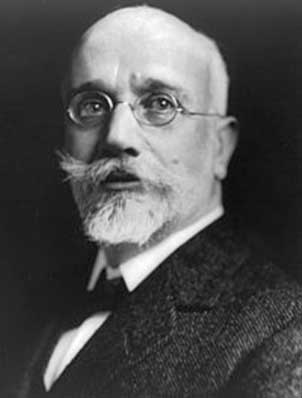Eleftherios Kyriakou Venizelos (Greek: Ελευθέριος Κυριάκου Βενιζέλος, romanized: Elefthérios Kyriákou Venizélos, 23 August [O.S. 11 August] 1864 – 18 March 1936) was a Greek statesman and a prominent leader of the Greek national liberation movement. He is noted for his contribution to the expansion of Greece and promotion of liberal-democratic policies. As leader of the Liberal Party, he was elected eight times as Prime Minister of Greece, serving from 1910 to 1920 and from 1928 to 1933. Venizelos had such profound influence on the internal and external affairs of Greece that he is credited with being “The Maker of Modern Greece”, and is still widely known as the “Ethnarch”.
His first entry into the international scene was with his significant role in the autonomy of the Cretan State and later in the union of Crete with Greece. In 1909, he was invited to Athens to resolve the political deadlock and became the country’s Prime Minister. Not only did he initiate constitutional and economic reforms that set the basis for the modernization of Greek society, but also reorganized both army and navy in preparation of future conflicts. Before the Balkan Wars of 1912–1913, Venizelos’ catalytic role helped gain Greece entrance to the Balkan League, an alliance of the Balkan states against the Ottoman Empire. Through his diplomatic acumen, Greece doubled its area and population with the liberation of Macedonia, Epirus, and most of the Aegean islands.
In World War I (1914–1918), he brought Greece on the side of the Allies, further expanding the Greek borders. However, his pro-Allied foreign policy brought him into direct conflict with Constantine I of Greece, causing the National Schism. The Schism polarized the population between the royalists and Venizelists and the struggle for power between the two groups affected the political and social life of Greece for decades. Following the Allied victory, Venizelos secured new territorial gains, especially in Anatolia, coming close to realizing the Megali Idea. Despite his achievements, he was defeated in the 1920 General Election, which contributed to the eventual Greek defeat in the Greco-Turkish War (1919–22). Venizelos, in self-imposed exile, represented Greece in the negotiations that led to the signing of the Treaty of Lausanne and the agreement of a mutual population exchange between Greece and Turkey.
In his subsequent periods in office, Venizelos restored normal relations with Greece’s neighbors and expanded his constitutional and economic reforms. In 1935, he resurfaced from retirement to support a military coup. The coup’s failure severely weakened the Second Hellenic Republic.
Ancestors
A theory supported that in the 18th century, the ancestors of Venizelos, named Crevvatas, lived in Mystras, in southern Peloponnese. During the Ottoman raids in the peninsula in 1770, a member of the Crevvatas family (Venizelos Crevvatas), the youngest of several brothers, managed to escape to Crete where he established himself. His sons discarded their patronymic and called themselves Venizelos. The family was of Laconic, Maniot, and Cretan origin.
However, during the National Schism, politician Konstantinos Krevattas denied that his family had any relation to Venizelos. In a letter to a Cretan partner, Venizelos wrote that his father Kyriakos had taken part in the siege of Monemvasia in 1821 with his brother Hatzinikolos Venizelos and 3 more brothers. His grandfather probably was Hatzipetros Benizelos, a merchant from Kythira.
Family and education
Eleftherios was born in Mournies, near Chania (formerly known as Canea) in then-Ottoman Crete to Kyriakos Venizelos , a Cretan merchant and revolutionary, and Styliani Ploumidaki. When the Cretan revolution of 1866 broke out, Venizelos’ family fled to the island of Syros, due to the participation of his father in the revolution. They were not allowed to return to Crete, and stayed in Syros until 1872, when Abdülaziz granted an amnesty.
He spent his final year of secondary education at a school in Ermoupolis in Syros from which he received his Certificate in 1880. In 1881 he enrolled at the University of Athens Law School and got his degree in Law with excellent grades. He returned to Crete in 1886 and worked as a lawyer in Chania. Throughout his life he maintained a passion for reading and was constantly improving his skills in English, Italian, German, and French.
Entry into politics
The situation in Crete during Venizelos’ early years was fluid. The Ottoman empire was undermining the reforms, which were made under international pressure, while the Cretans desired to see the Sultan, Abdul Hamid II, abandon “the ungrateful infidels”. Under these unstable conditions Venizelos entered into politics in the elections of 2 April 1889 as a member of the island’s liberal party. As a deputy he was distinguished for his eloquence and his radical opinions.
Read More : Wikipedia


